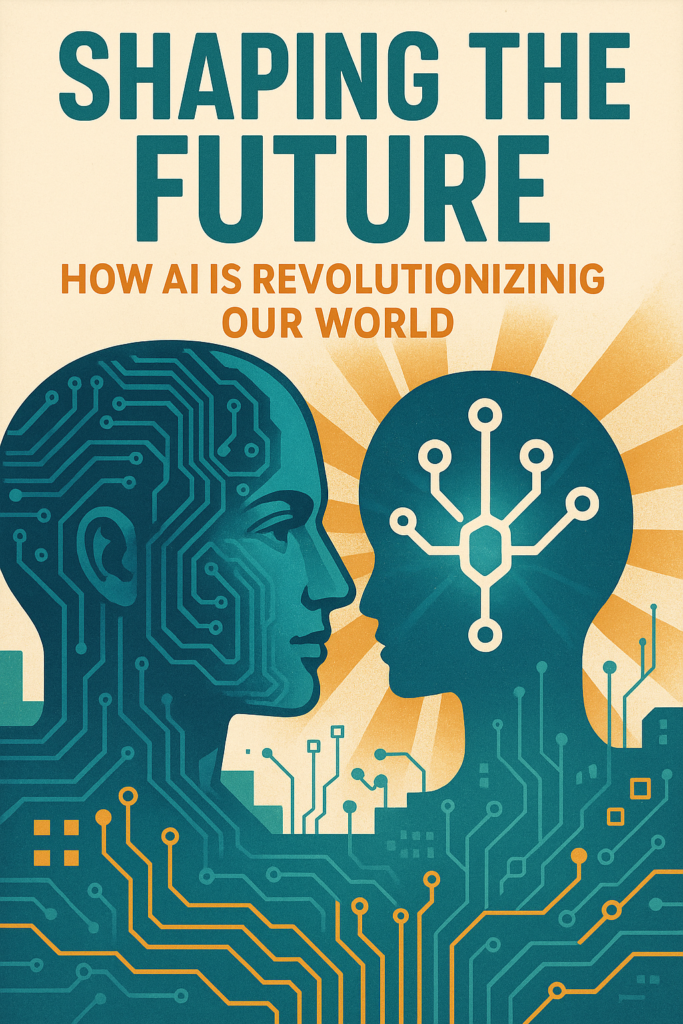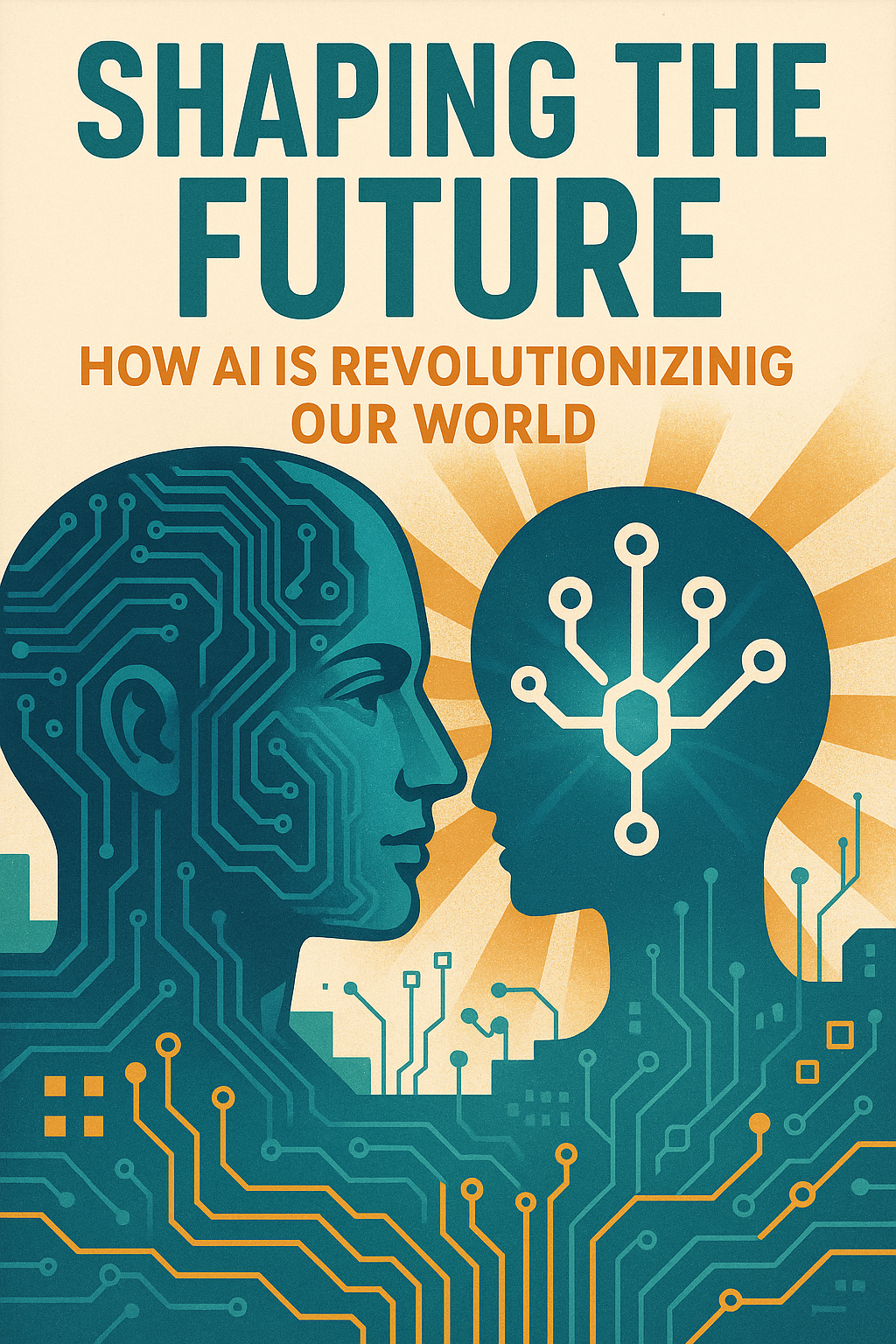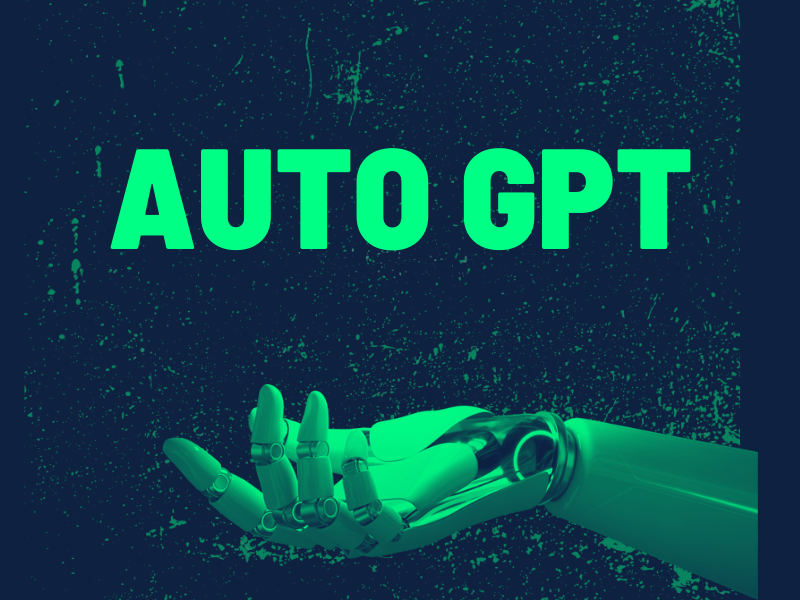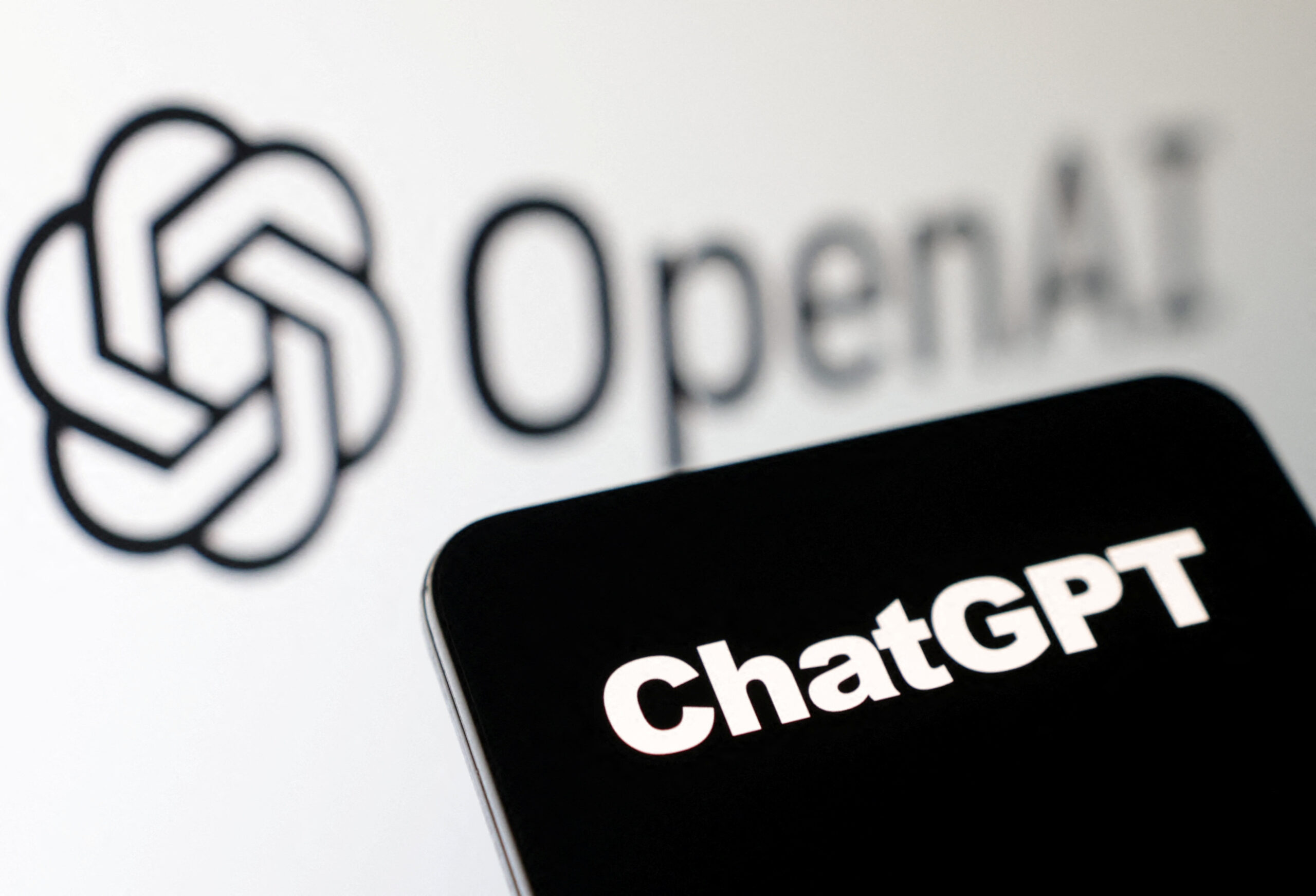
Imagine a world where your daily tasks are not only automated but tailored precisely to your needs, where healthcare systems predict health issues before they arise, and where transportation is safe, efficient, and almost entirely hands-free. This is not a distant science fiction narrative—it’s the reality that artificial intelligence is beginning to shape around us. With AI at the helm, the possibilities for innovation and improvement in various sectors are limitless, and the transformation is happening faster than many of us might have anticipated.
In recent years, AI has become more than just a buzzword; it’s a pivotal force that’s setting new parameters for what’s achievable. From revolutionizing industries by optimizing operations to enhancing our personal lives with smart technologies, AI is an integral part of our evolution. As we delve deeper into how AI is revolutionizing our world, it’s essential to understand both the profound impact it can have and the challenges that come along with this technological advancement. Prepare to explore the extraordinary ways AI is reshaping our future, making what once seemed impossible, now within reach.
The Evolution of Artificial Intelligence
The journey of ai began in the mid-20th century with pioneers like Alan Turing and John McCarthy laying the theoretical groundwork for machines that could “think.” Early efforts focused on symbolic reasoning, attempting to encode human logic into sets of rules. These rule-based systems were groundbreaking for their time, demonstrating that computers could solve mathematical problems, play games like chess, and process language. However, they struggled when confronted with the ambiguities and complexities of real-world scenarios.
The next big leap came with the advent of machine learning, which shifted the paradigm from manually coded rules to data-driven models. Neural networks—loosely inspired by the human brain—began showing promise in tasks like image recognition, speech processing, and natural language understanding. In recent years, deep learning architectures have further accelerated progress, enabling AI systems to outperform humans in specialized tasks such as diagnosing medical images and mastering strategic games. This rapid evolution sets the stage for AI’s integration into nearly every aspect of our daily lives.
AI in Everyday Life
From the moment we wake up, ai-infused technologies are at work guiding our decisions and streamlining our routines. Smart assistants like Siri, Alexa, and Google Assistant are no longer novelties—they’ve become digital companions capable of understanding voice commands, setting reminders, and even controlling home appliances. This seamless integration of AI into our living spaces offers unprecedented convenience and efficiency.
Beyond voice assistants, AI algorithms power the personalized recommendations we see on streaming platforms, e-commerce sites, and social media feeds. By analyzing behavioral data and preferences, these systems suggest movies, products, and content tailored just for us. Even navigation apps leverage AI to optimize routes in real time, accounting for traffic, weather, and road conditions. As AI continues to refine its predictive capabilities, our everyday interactions with technology grow more intuitive and helpful.
AI in Healthcare: Predictive Medicine and Personalized Care
Healthcare has become one of the most promising frontiers for ai innovation. By mining vast datasets—ranging from electronic health records to genomic sequences—AI systems can identify patterns and risk factors that human clinicians might overlook. This predictive power allows for early intervention, potentially saving lives by catching diseases like cancer and cardiovascular issues in their nascent stages.
Moreover, AI enables personalized care plans tailored to each patient’s unique genetic makeup, lifestyle, and medical history. Algorithms can recommend optimal treatment regimens, adjust medication dosages, and monitor patient progress in real time. As AI-driven tools become more integrated into clinical workflows, they promise to enhance diagnostic accuracy, reduce medical errors, and improve overall patient outcomes.
Transforming Transportation: The Rise of Autonomous Vehicles
Self-driving cars are perhaps the most visible symbol of AI’s transformative impact on transportation. By leveraging computer vision, lidar, and advanced machine learning models, autonomous vehicles can interpret their surroundings, make split-second decisions, and navigate complex environments without human intervention. Companies like Tesla, Waymo, and Cruise are spearheading this revolution, testing fleets of driverless cars on public roads.
The potential benefits extend far beyond hands-free driving. Reduced traffic congestion, fewer accidents, and lower emissions are all within reach as fleets of autonomous vehicles communicate and coordinate their movements. In the longer term, autonomous trucks could revolutionize logistics and supply chains, while air taxis and drone deliveries promise to reshape urban mobility and last-mile services. While regulatory hurdles and public acceptance remain challenges, the momentum behind AI-powered transportation is undeniable.
AI in Education: Personalized Learning and Adaptive Systems
Traditional classroom models often struggle to meet the diverse learning needs of students. AI-driven educational platforms address this by offering personalized learning pathways that adapt to each student’s pace and style. Intelligent tutoring systems can diagnose knowledge gaps, provide targeted feedback, and present content in engaging formats such as interactive modules and gamified exercises.
Adaptive learning technologies also aid teachers by automating administrative tasks like grading and attendance tracking. This frees educators to focus on mentorship and curriculum development. Furthermore, AI analytics can highlight trends in student performance, enabling early interventions for those at risk of falling behind. As these systems mature, education is becoming more inclusive, flexible, and effective.
AI in Business: Streamlining Operations and Enhancing Customer Experiences
In the corporate world, ai applications are driving efficiencies across functions— from supply chain management to marketing. Predictive analytics help businesses forecast demand, optimize inventory levels, and reduce operational costs. Robotic process automation (RPA) handles repetitive administrative tasks, allowing employees to devote their skills to higher-value activities.
On the customer-facing side, AI-powered chatbots and virtual assistants deliver instant support around the clock, resolving common inquiries and providing personalized recommendations. Sentiment analysis tools monitor social media and customer feedback to identify trends and address issues proactively. As organizations harness AI to streamline processes and delight customers, they gain a competitive edge in an increasingly dynamic marketplace.
Ethical Considerations in the Age of AI
As AI capabilities expand, ethical questions loom larger than ever. Bias in training data can lead to unfair outcomes in critical areas like hiring, lending, and criminal justice. Ensuring transparency in AI decision-making processes—often referred to as “explainability”—is paramount to building trust with users and stakeholders.
Moreover, the deployment of autonomous weapons and pervasive surveillance systems raises concerns about human rights and global security. Policymakers, technologists, and civil society must collaborate to establish guidelines that balance innovation with respect for privacy, fairness, and accountability. Only through thoughtful governance can we steer AI toward applications that benefit humanity as a whole.
Overcoming Challenges: Security and Privacy Concerns
Data breaches and cyberattacks pose significant risks to AI systems and the sensitive information they process. As AI models become more deeply embedded in critical infrastructure, ensuring their resilience against adversarial attacks is essential. Techniques such as differential privacy and federated learning aim to protect individual data while still enabling powerful insights.
Additionally, the sheer volume of data required to train advanced models raises privacy concerns. Regulations like GDPR and CCPA provide frameworks for data protection, but organizations must adopt robust encryption, access controls, and auditing mechanisms. By prioritizing security and privacy from the ground up, developers can build AI solutions that are both innovative and trustworthy.
The Future of AI: Trends and Innovations
Looking ahead, AI research is poised to break new ground in areas like quantum machine learning, neuromorphic computing, and general artificial intelligence. Quantum algorithms could dramatically accelerate complex computations, unlocking breakthroughs in drug discovery and climate modeling. Neuromorphic chips, designed to mimic the brain’s architecture, promise greater efficiency and lower power consumption for AI workloads.
Moreover, AI democratization efforts—through open-source platforms and accessible development tools—are empowering a broader range of innovators worldwide. As interdisciplinary collaborations flourish, we can expect AI to drive advances in sustainability, space exploration, and even art. The coming decade will likely witness AI systems that understand and interact with the world in increasingly human-like ways.
Conclusion: Embracing a Future Shaped by AI
The revolutionary impact of AI is evident across every sector, from healthcare and education to transportation and business. As we continue to refine these technologies, we must balance innovation with ethical considerations, ensuring that ai serves the common good.
By prioritizing transparency, security, and inclusive design, we can harness AI’s potential to solve some of humanity’s most pressing challenges. The future is not set in silicon—it’s one we shape together, propelled by the transformative power of artificial intelligence.



